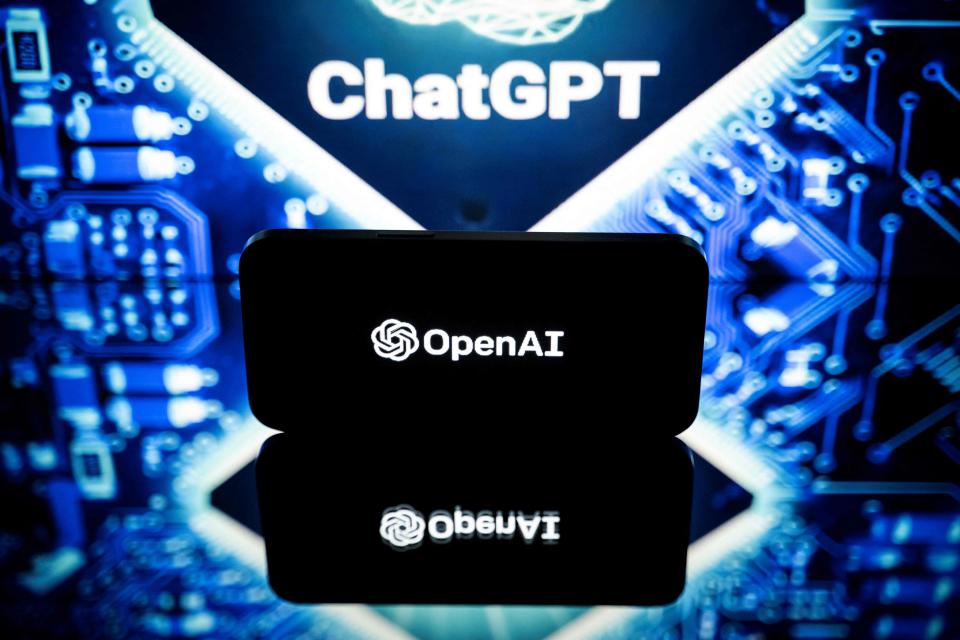Take note, lawmakers: ChatGPT could hurt kids more than drag queens or pronouns
As a mom of three school-age boys, education and education policy is always top of mind in my house.
I watched closely as our public schools barely avoided a budget crisis when the Arizona House, and then the Senate, lifted the constitutional spending cap for education.
As a Chinese American, I am closely following Senate Bill 1557, a bill to add “the history and contributions of Asian American and Pacific Islanders” when state academic standards are reviewed.
Our legislators are also choosing to hear many bills that have less to do about education and more about stoking the culture wars over banned library books, use of school bathrooms and the policing of pronouns.
Also on the roster: Three “drag queen” bills – two of them restricting where and at what time these shows may occur – and, for good measure, a third piece of preemptive legislation to make clear that “taxpayer funds can’t fund a drag show if it targets children.”
If certain legislators are so keen on working on pro-parents legislation to protect our children, let’s tackle a real "moral threat” to our education system: the rise of generative AI technologies.
ChatGPT can pass college exams

Generative AI is an artificial intelligence system that uses machine learning algorithms to learn patterns in existing data to generate new data, typically in the form of text, images, audio or video.
Open AI’s ChatGPT, a chatbot that interacts conversationally, is generative AI’s current poster child. It quickly surpassed 100 million subscribers in two months, making it the fastest growing app in the history of web apps. It’s making daily headlines, each more impressive than the last.
ChatGPT’s top function is programming and developer software, but its buzziest functions are writing essays and passing exams. ChatGPT passed the U.S. Medical Licensing Exam and received a B on a University of Pennsylvania Wharton MBA paper.
To the prompt “what is the purpose of ChatGPT?” it responds, “To enable users to interact with a machine in a natural and intuitive way, and to provide relevant and helpful information in response to their requests.
“By doing so, ChatGPT aims to provide a convenient and accessible way for people to access information and to enhance their experiences with technology.”
CEOs use it to write emails. Tech giants Microsoft and Google are in a race to roll out the most robust chat-AI powered search.
On the other hand, this technology also poses new challenges, raising questions about ethics, privacy, bias and misinformation.
Ensure that AI helps, not hurts, students
In the classrooms, many teachers who have tested the technology admit it generates passable work. Public schools across America, including our nation’s largest school district, New York Public Schools, have banned ChatGPT on school devices, citing cheating concerns.
This technology is revolutionary, and I believe, here to stay. An outright ban feels like a Band-Aid solution, depriving students access to the technologies that will most likely fuel the jobs of their future.
Fight it head-on?ChatGPT might help students cheat
Collectively, we can all do our part to ensure this technology is serving its purpose to enhance humanity.
As a family unit, we can decide the extent and boundaries of technology use at home.
Schools can impose guardrails to ensure the technology is used constructively rather than as a cheating tool. Offering courses in machine learning and teaching ethics at the elementary level may help better prepare our students to tackle these challenges.
Legislators can be parental rights advocates by ensuring that our children are not the targets of AI-generated fake videos, misinformation and propaganda. How we collectively regulate technology, technology use and technology companies is something that those at our highest levels of government grapple with.
Lawmakers should focus their efforts here
At the end of January, U.S. Surgeon General Vivek Murthy cautioned that 13, the minimum age to sign up for a social media account, is too young as teens are just “developing their identity.”
Our president echoed the same sentiment during his State of the Union address, calling for Congress to “pass bipartisan legislation to stop Big Tech from collecting personal data on kids and teenagers online ... .”
How children use generative AI is another topic in this larger discussion about digital literacy and how young is too young to distinguish between what is real and what is fake?
There is a greater likelihood that our kids will be surfing the internet than being within the vicinity of a drag queen venue. I would rather my legislators engage parents, schools and the larger community to tackle these real-life technology challenges to protect children.
ChatGPT is fascinating and frightening: more real and consequential than the imagined menace of drag.
Yvonne So is a mom, AAPI activist and host of the upcoming iHeart Radio and Seneca Women podcast, “Cashing our Trillions,” a series that spotlights the work moms do to sustain the $1.5 trillion economy of unpaid female work. She is a member of the Board of Contributors for The Arizona Republic. Reach her at cashingourtrillions@gmail.com.
This article originally appeared on Arizona Republic: ChatGPT should be on Arizona lawmakers' radar, not these other things

